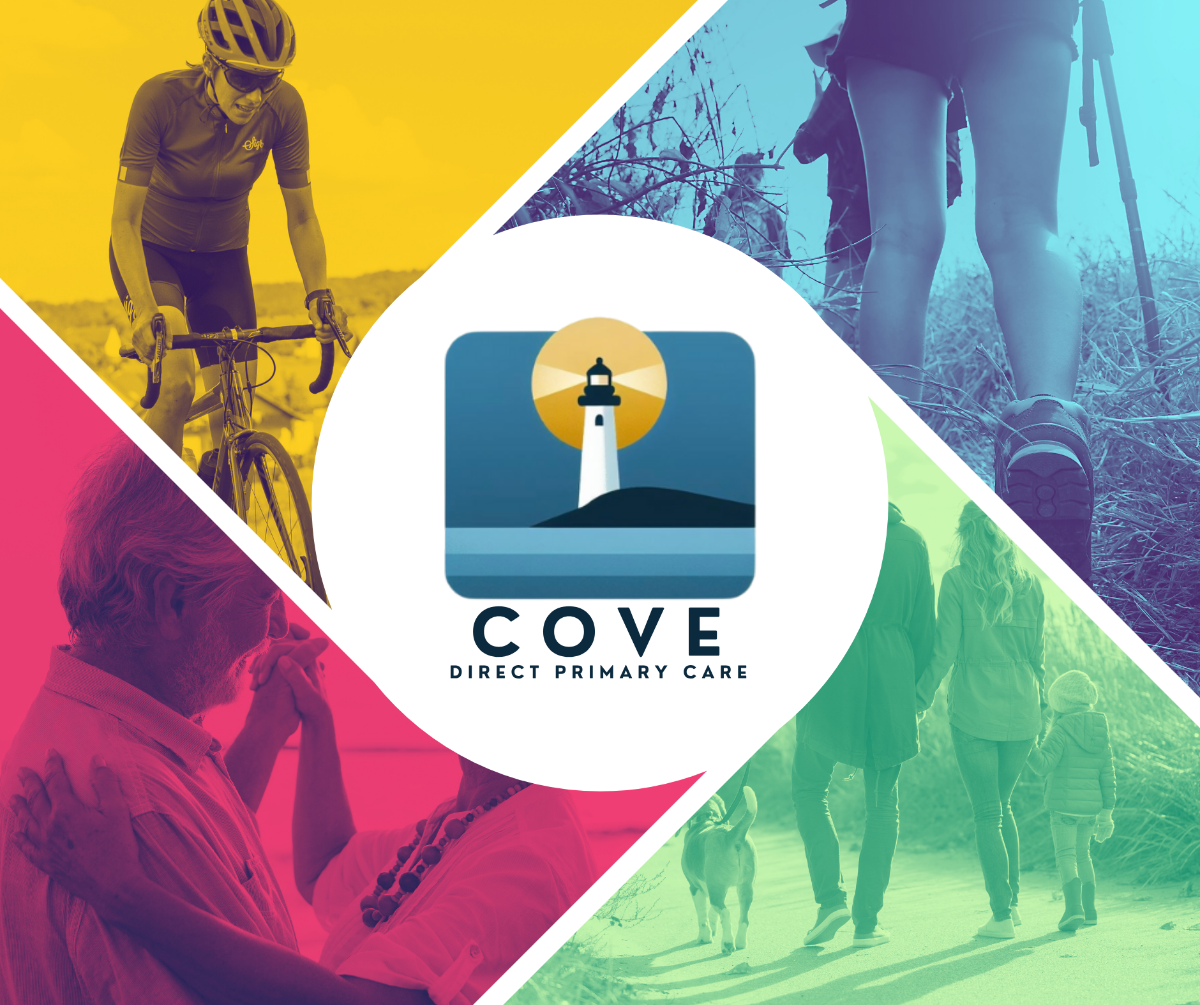October in Columbus, IN, brings crisp fall days, perfect for outdoor activities like hiking, biking, or family walks. Physical activity is more than just fitness—it’s a powerful tool for health at every stage of life. At Cove Direct Primary Care (DPC), we’re committed to empowering our community with evidence-based health knowledge. This guide explores the science behind exercise as medicine, offering practical, research-backed tips to help kids, adults, and seniors stay active and healthy this fall.
The Science of Exercise
Physical activity strengthens the body and mind, reducing the risk of chronic diseases and boosting mental health. According to the Centers for Disease Control and Prevention (CDC), regular exercise lowers the risk of heart disease, type 2 diabetes, and depression across all ages (CDC, 2023). For kids, it supports growth and focus; for adults, it enhances energy and stress resilience; and for seniors, it preserves mobility and independence. A 2021 study in The Lancet found that meeting minimum activity guidelines—150 minutes of moderate exercise weekly for adults, 60 minutes daily for kids—can add years to life expectancy.
3 Evidence-Based Insights on Exercise
- Exercise and Chronic Disease Prevention: Regular physical activity reduces the risk of major health issues. A 2020 study in Circulation showed that moderate exercise, like brisk walking, lowers blood pressure and improves cholesterol levels in adults by 10-15%. For kids, daily activity strengthens bones and reduces obesity risk, per Pediatrics (2019). Seniors who engage in balance-focused exercises, like tai chi, reduce fall risk by up to 50%, according to a 2022 Journal of Gerontology study. Even small increases in activity yield significant benefits.
- Mental Health Benefits of Movement: Exercise boosts mood and cognitive function through the release of endorphins and brain-derived neurotrophic factor (BDNF). A 2021 study in Frontiers in Psychiatry found that 30 minutes of moderate activity, like cycling or dancing, reduces anxiety and depression symptoms in kids and adults. For seniors, regular movement improves memory and slows cognitive decline, per Neurology (2020). Physical activity is a natural antidote to stress, especially during busy fall schedules.
- Tailoring Activity to Age and Ability: Effective exercise varies by age and fitness level. The World Health Organization (2020) recommends kids get 60 minutes of varied activities daily, mixing aerobic (e.g., running) and strength-building (e.g., climbing). Adults benefit from 150-300 minutes weekly of moderate activity, like swimming, or 75-150 minutes of vigorous activity, like jogging. Seniors thrive with low-impact options like walking or yoga, which improve flexibility and balance. Consistency matters more than intensity, making exercise accessible for all.
Practical Exercise Tips for Families
- Kids: Encourage 30-60 minutes of play daily, like soccer at local parks or tag at Blackwell Park. Make it fun with a family obstacle course to keep kids engaged.
- Adults: Try a 20-minute brisk walk on Columbus’s People Trails during lunch breaks or drop in for a game of Pickleball at Circle K Fieldhouse. Aim for consistency with short, daily sessions.
- Seniors: Incorporate low-impact activities like chair exercises or gardening to maintain mobility. Join a walking group at Lincoln Park for social and physical benefits.
- Family Fun: Plan a fall hike at Brown County State Park or a bike ride along the Columbus People Trail, setting a family goal to stay active together weekly.
Move Your Way to Better Health
Exercise is a powerful, evidence-based tool to enhance health and well-being for every member of your family. By incorporating these tips into your fall routine, you can boost energy, prevent disease, and thrive in Columbus, IN. Want to explore more ways to support your family’s health? Text (812) 227-6024 or visit www.covedpc.com to schedule a free consultation with Cove DPC and discover personalized care.
References:
- Centers for Disease Control and Prevention (CDC). (2023). Physical Activity Guidelines.
- The Lancet. (2021). Physical Activity and Life Expectancy.
- Circulation. (2020). Exercise and Cardiovascular Health.
- Pediatrics. (2019). Physical Activity in Children.
- Journal of Gerontology. (2022). Exercise and Fall Prevention in Seniors.
- Frontiers in Psychiatry. (2021). Exercise and Mental Health.
- Neurology. (2020). Physical Activity and Cognitive Decline.
- World Health Organization. (2020). Guidelines on Physical Activity.














